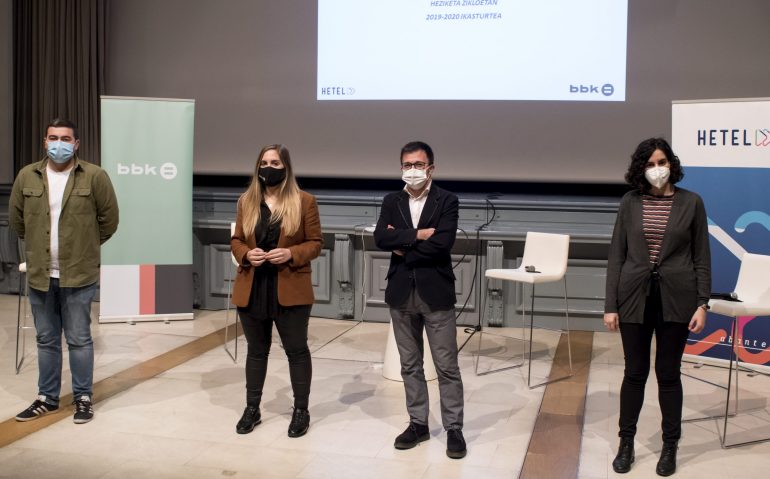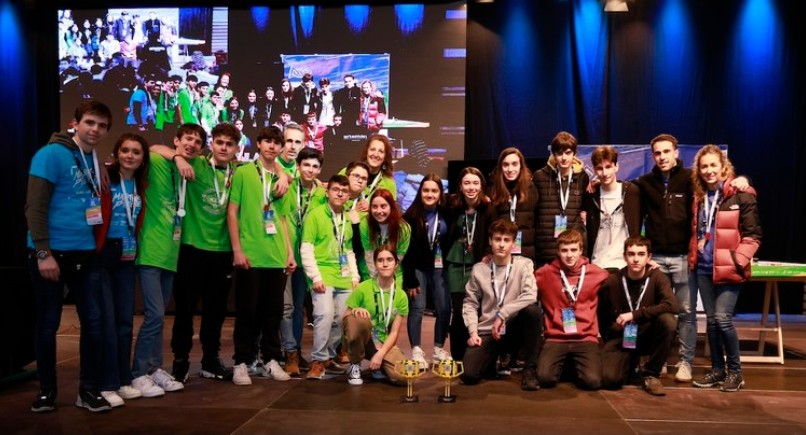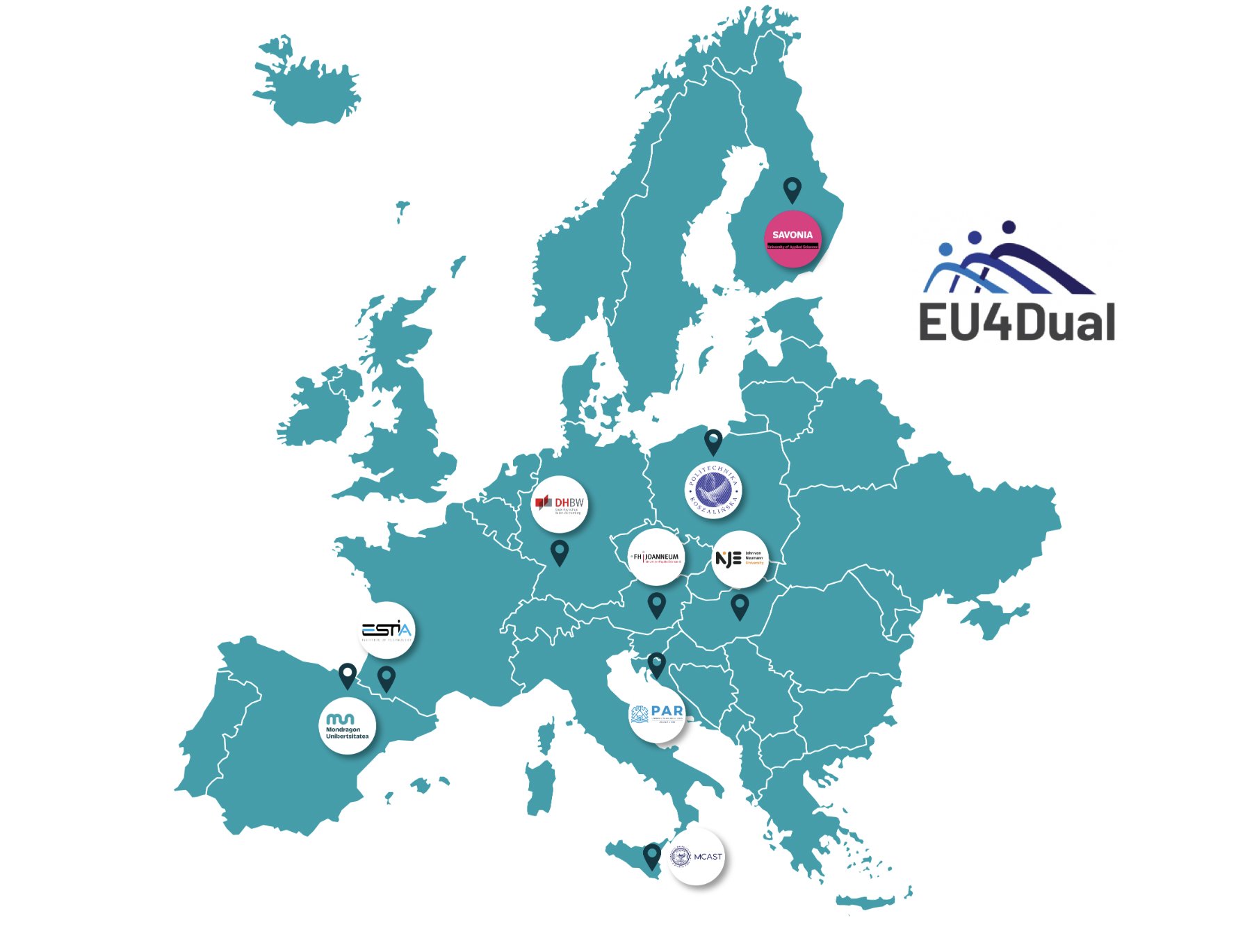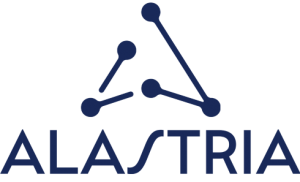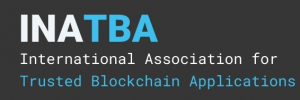The COVID-19 pandemic and its consequences are affecting all economic sectors. The students who have finished their studies during the 2019-2020 academic year have been one of the groups harmed when looking for work, in an economic situation in full crisis, and where unemployment and the ERTES have been a common trend in the Basque Country since March 2020. Despite this, the employability of students who have finished their training cycles – basic, middle and higher – in HETEL during the 2019-2020 academic year, has reached 66%. The percentage of labor insertion of the upper cycles is a little higher, of 67% an index that rises to 77% in the case of those who have studied the dual modality, and that reaches practically 100% in the industrial modality.
These data are derived from the report ‘Employment situation in the training cycles of HETEL centres 2019-2020’ carried out by the Association of Abantean Vocational Training Centres of the Basque Country, HETEL, among 24 of its 26 centres in the Basque Country covering 19 professional families. The report has been able to be carried out thanks to the support of BBK and the commitment of this entity for the labor insertion of the youngest. Both entities, specifically the president of HETEL, Julen Elgeta, and the head of talent and entrepreneurship of BBK, Oihane Aldayturriaga, presented the report today at a press conference. In order to draw up this report, more than 2,200 telephone surveys were carried out between November and December among the students who finished their studies last June, that is, six months after finishing their training cycles. It is a valuable report not only for Basque Vocational Training and for HETEL, but also for each participating centre, since as Elgeta indicates “it gives them strategic keys for future decision-making, since they can analyze the demand and employability of each professional family, and the training cycles with greater and lesser fit of employment or the most and least demanded by women, among other variables.” This data is possible thanks to the support and trust of BBK.
Masculinized VET
In HETEL centres, as in the case of other vocational training centres in the Basque Country, young people, particularly boys, continue to demand industrial cycles. Thus, the training cycles that represent the majority of the supply and that are most demanded by young people are the industrial ones. In addition, another fact that emerges from the study is that vocational training at HETEL, and by extension in the Basque Country, is very masculinized, with only 35% of girls, and very similar percentages in the three training levels –basic, middle and higher training-. This percentage, however, is equal in the service cycles, with 46% of men and 54% of women, although this offer of VET services is a minority in the offer of HETEL centres.
Job placement
The labour insertion of HETEL’s industrial cycles stands at 68% and the insertion of service cycles at 63%, with an average of 66% of employability. In addition, the average value between the studies carried out and the work performed is 75%. “A good value considering the situation in which most jobs in companies have had to develop, from teleworking to the reorganization or reconfiguration of functions …”, says Julen Elgeta, president of HETEL. The report shows that the labor insertion in Gipuzkoa is higher than that registered in Bizkaia, and stands at 80.7%, which indicates, according to HETEL “that the general behavior of companies has been more agile and effective when facing the economic crisis”. This data reinforces the need and importance of the intermediation service of HETEL enpresa de Bizkaia to try to join efforts in order to improve this labor insertion, which now with the collaboration of BBK wants to promote, “we will work so that next year we have better data”, predicts the president of HETEL.
As Elgeta explains, “it must be borne in mind that these data on job placement occur in a context of economic crisis generated as a result of the pandemic, which gives the job placement data presented an added value of VET in the Basque Country, and of HETEL in particular, and what it can contribute to Basque companies in difficult times”.
Specifically, the HETEL training cycles with the most graduate students are industrial, such as automation and industrial robotics, design in mechanical manufacturing, production programming in mechanical manufacturing or industrial mechatronics, among others. As for women, although the percentage of those who study industrial cycles has grown somewhat, it is still around 10%.


